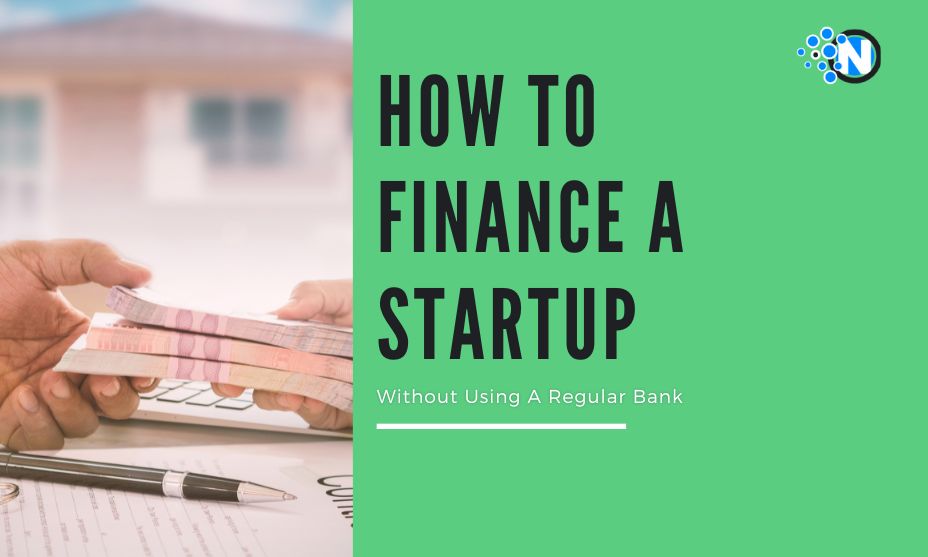How To Finance A Startup Without Using A Regular Bank

Although entrepreneurs must have a strong business strategy, funding is one of the most important components of a successful firm. However, funding a new or small business can be a challenging and time-consuming procedure, particularly for people with bad credit. There isn’t a minimum credit score required to obtain a business loan; hence, traditional lenders often examine a certain range. In this blog post, we will discuss different funding sources for small businesses.
Tips To Fund Your Startup Without Using A Bank Loan
Your small business may be able to get the funding it needs from alternative lenders and financing sources if it doesn’t qualify for a standard bank loan. These are a few of the best funding choices available to small companies.
1- Community Development Finance Institutions
Affordably priced financing is available to small business and microbusiness owners globally through hundreds of nonprofit community development finance institutions (CFDIs). Nonprofit community development finance institutions, sometimes known as CDFIs, are becoming more prevalent in the UK. Usually, they are driven by a desire to help out locals who are either too poor to qualify for traditional business loans or too poor to start their own firm.
Unlike traditional banks, these CDFIs take applicants’ business ideas into account and evaluate their viability prior to making loan offers. If this is the case, applying for a loan from Partner Financing often requires meeting few requirements. It has no interest and gives your partners a significant ownership position in your company compared to a traditional loan; ultimately, they become your board of directors and investors.
2- Angel Investors
Typically, an angel investor is a lone person with sufficient capital to invest in a tiny firm; they frequently support startups because they recognize the potential for development. They are not the same as venture capitalists (VCs), who are occasionally individuals or even a firm. VCs frequently demand that a business seeking a loan have steady growth and have been operating for at least five years. Google will provide a plethora of angel investor websites.

3- Invoice Financing
An accounting technique called invoice financing enables companies to swiftly raise cash by taking out loans against their accounts receivable. With invoice financing, a business borrows money from a financing provider using an invoice or invoices as security. Businesses that receive a lot of purchase orders but lack the funds to purchase fresh supplies will find this kind of financing to be quite helpful. In essence, it enables businesses to bridge the payment gap between work that has been billed and payments made to contractors and suppliers.
4- Crowdfunding
If your company concept meets the requirements, all you need to start your small business is a crowdfunding platform like Kickstarter or Indiegogo. Some firms may raise as little as £270,000 to launch. These websites can provide you up to £500,000 for startup cash, but the drawback is that it takes time to accumulate that kind of money, so if you want to be successful, you’ll need to develop patience.
5- Grants
Should your startup be grounded in science or research, you may be eligible to seek for small business assistance from the UK government. Government facilities can help you obtain the necessary funds and are located throughout the United Kingdom. When you apply for the award, be sure you fulfil all the conditions.
6- Invest To Multiply Your Money
If you have a small amount and don’t want to get a loan for your startup, investment is a great idea. Before starting a business, invest your money in profitable investment vehicles like cryptocurrencies, stocks, and bonds. Nowadays, cryptocurrency is at a spike. Millions of people have tried their luck in cryptocurrencies and have been making a handsome income using auto bots. Auto bots such as Bit Index AI make crypto trading very easy. Beginners who don’t have thorough knowledge about trading can also make money using these bots. If you have a few years to prepare your startup, invest your money in digital currencies and see how your money gets doubled, or tripled in a few years.
7- Peer-to-Peer Lending
Lending money to people or companies using online platforms that connect lenders and borrowers is known as peer-to-peer lending or P2P lending for short. In the UK, two of the most well-known P2P lending sites are Assetz Capital and Lending Works. The nicest thing about peer-to-peer financing is that small company owners can locate the finest lenders for their needs and may access it with ease.

8- Convertible Debt
A sort of corporate loan known as convertible debt allows the owner of the company to borrow money from an investor or group of investors with the understanding that the debt would eventually be converted into equity by both parties. If your company is new, you should take advantage of this type of financing, particularly if you have a strong sales history and your product or service is profitable. You’ll also have access to more investors who have the financial wherewithal to sustain your company going forward.
9- Merchant Cash Advances
Paying running expenditures is the largest difficulty, according to 43% of small firms, out of 66% that suffer financial difficulties. For a startup like yours, merchant cash advances (MCAs) are a smart alternative since the loan amount is manageable and you can pay it back over time in smaller instalments with interest.
If you want £70,000 in cash right now to pay for specific equipment purchase costs, the merchant gives you a lump sum payment that is either equal to or, in certain situations, slightly beyond your requirements. The nicest part about MCAs is that you may obtain finance without the requirement for any assets, like real estate or inventory.
10- Microloans
You can choose microloans for fundraising if you’re about to start a small business. Smaller loans than business loans from typical banks, known as microloans, microlending, or microfinancing, are provided to business owners with little or no collateral. A startup would probably be qualified for a loan from one of the UK’s microfinancing businesses, such as UK Aid Match and Lend With Care. Usually, they pay for working capital for supplies, furnishings, and equipment as well as operational expenses.
The Final Word
Diverse funding solutions are accessible for small business owners who might encounter difficulties meeting the requirements for a conventional bank loan. Fix and flip loans, hemp business loans, CBD business loans, and cannabis company loans are some of these choices. Selecting the best loan type for your requirements is crucial because each has pros and cons of its own.




